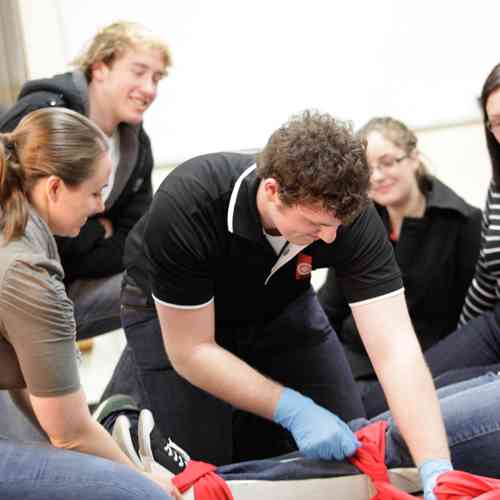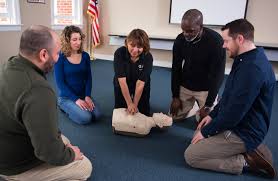Introduction: Understanding the Importance of CPR Training
When it involves emergency situations, every 2nd counts. Cardiopulmonary resuscitation (CPR) is a crucial ability that can suggest the difference in between life and fatality. As you plan for your upcoming CPR training sessions, recognizing what to expect and exactly how to approach this crucial skill is vital. Whether you're aiming to come to be accredited in a Child Treatment Emergency treatment Course or an adult-oriented CPR Course, the expertise you acquire will certainly encourage you to act efficiently in real-life situations.
In this short article, we will certainly check out thorough strategies on exactly how to prepare for your upcoming CPR training sessions. We'll cover whatever from selecting the right course, what materials to review, functional suggestions for effective understanding, and far more. Allow's dive in!
How to Plan for Your Future CPR Training Sessions
Preparing for your CPR training session entails not just psychological readiness however additionally logistical considerations. Below are some critical steps:
1. Pick the Right Course
Before anything else, picking the right training course customized to your requirements is critical. Are you trying to find a Child Care First Aid Course? Or possibly an extra basic CPR Course? Consider alternatives like the hltaid012 Day care First Aid Course Near Me, which focuses specifically on emergency treatment for children.
- Research Options: Make use of online sources or regional wellness organizations. Check Credentials: Make sure the instructors are accredited professionals.
2. Understand Program Prerequisites
Most training courses have requirements that may call for anticipation or qualifications. For example:
- Some programs may require conclusion of an earlier course like the hltaid009 CPR Course Verify if there's any kind of age restriction or particular problems needed prior to enrolling.
3. Gather Essential Materials
Each course commonly supplies materials like manuals or on the internet sources. However, having additional materials can be beneficial.
- Look for books on emergency treatment and CPR techniques. Consider watching training videos available on platforms like YouTube.
4. Acquaint Yourself with Mouth-to-mouth Resuscitation Techniques
Before attending your training session, acquaint on your own with basic mouth-to-mouth resuscitation strategies with different sources:
- Online tutorials Apps committed to first aid and CPR Practice utilizing a mannequin if possible
This pre-course exposure will certainly give you a running start when hands-on training begins.
5. Practice Mindfulness & Focus
Entering your training with a focused and tranquil way of thinking can dramatically enhance your understanding experience:

- Consider mindfulness methods such as meditation or deep breathing exercises. Avoid distractions; locate a silent area where you can focus on evaluating material.
The Framework of Regular CPR Training Sessions
Understanding what a typical session resembles can aid demystify any kind of worries you may have.
1. Introduction and Overview
Most sessions begin with an intro that covers:

- The importance of CPR Statistics connected to heart health Overview of what will be covered throughout the session
2. Hands-On Abilities Practice
Hands-on technique is often one of one of the most valuable facets of any CPR training program:
Basic Life Assistance (BLS) skills Choking relief techniques Using an Automated External Defibrillator (AED)These skills will certainly be exercised with mannequins and various other simulation tools.
3. Circumstances and Function Playing
Role-playing various emergency situation situations helps participants use their skills in sensible scenarios:
- Participants could replicate a circumstance where someone breaks down suddenly. Instructors guide individuals via each step of reacting appropriately.
What You Required to Bring to Your Training Session
To ensure you're totally prepared, take into consideration bringing along numerous items:
1. Individual Recognition and Certification Cards
Some programs may call for evidence of identity or previous certifications.
2. Note Pads and Creating Tools
Taking notes throughout talks can enhance retention:
- Bring pens, pencils, and highlighters.
3. Canteen & Snacks
Staying moistened keeps your focus sharp throughout lengthy sessions.
Tips for Optimizing Your Discovering Experience Throughout Training
So you've signed up in your program-- now what? Below are methods to make one of the most out of your time:
1. Engage Proactively in Class Discussions
Don't avoid asking inquiries or seeking explanation when needed! Engaging proactively signals teachers that you're purchased learning.
2. Network with Fellow Participants
Building connections with others taking the exact same course supplies opportunities for team study later on.
Post-Course Actions: What Comes Next?
After finishing your training course, there are essential follow-up actions:
1. Evaluation Your Abilities Regularly
Practicing on a regular basis guarantees that skills stay fresh in your mind:
- Schedule month-to-month practice sessions with buddies or household members.
2. Maintain Accreditations Up-to-Date
Most accreditations require renewal every 2 years; don't let your own lapse!
FAQs concerning Getting ready for Your Approaching CPR Training Sessions
1. What must I put on to my CPR training session?
Wear comfy apparel that allows mobility since you'll be exercising physical skills.

2. Can I take a Child Care First Aid Course online?
Yes! Lots of organizations use online versions of the Childcare First Aid courses; simply ensure they're accredited.
3. For how long does a typical CPR course last?
Courses differ however usually variety from 4 to 8 hours depending on whether they include additional topics like first aid training.
4. Will certainly I receive certification after completing my training?
Most accredited programs offer certifications upon effective conclusion; talk to your hltaid009 CPR Courses Near Me trainer beforehand!
5. Is it necessary to have previous medical expertise before taking a mouth-to-mouth resuscitation course?
No prior medical understanding is called for; these Child Care First Aid Training courses are designed for beginners in addition to those aiming to refresh their skills.
6. Exist any age limitations for taking these courses?
While many courses permit individuals as young as 12 years old, constantly inspect specific needs based upon location or organization guidelines.
Conclusion: Welcoming Readiness Through Education
As we conclude our exploration into preparing for upcoming CPR training sessions, it's clear that preparation plays a vital function in mastering life-saving skills properly! From meticulously selecting relevant training courses-- like the hltaid012 Child Care First Aid Courses Near Me-- to proactively involving during course conversations-- every initiative contributes towards coming to be skillful at delivering treatment when it matters most! Equip on your own today because being ready might save a person's life tomorrow!